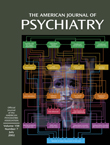Obstetric Complications and Schizophrenia: Historical and Meta-Analytic Review
Abstract
OBJECTIVE: This paper reviews the literature on obstetric complications as a risk factor for schizophrenia. The authors trace the evolution of this literature through different methods and carry out a quantitative review of the results from prospective, population-based studies. METHOD: Relevant papers were identified by a MEDLINE search, by examination of reference lists of published papers, and through personal contact with researchers in the field. Studies were grouped in chronological order according to common themes or methods. Meta-analytic techniques were used to summarize the findings of prospective population-based studies. RESULTS: The meta-analytic synthesis of the prospective population-based studies revealed that three groups of complications were significantly associated with schizophrenia: 1) complications of pregnancy (bleeding, diabetes, rhesus incompatibility, preeclampsia); 2) abnormal fetal growth and development: (low birthweight, congenital malformations, reduced head circumference), and 3) complications of delivery (uterine atony, asphyxia, emergency Cesarean section). Pooled estimates of effect sizes were generally less than 2. CONCLUSIONS: Current methods of investigating the relationship between obstetric complications and schizophrenia are reaching the limit of their usefulness. Lack of statistical power to measure small and interactive effects and lack of detailed information about the prenatal period are major problems with current approaches. A combination of disciplines and approaches will be needed to elucidate the mechanisms underlying these small but important associations.



